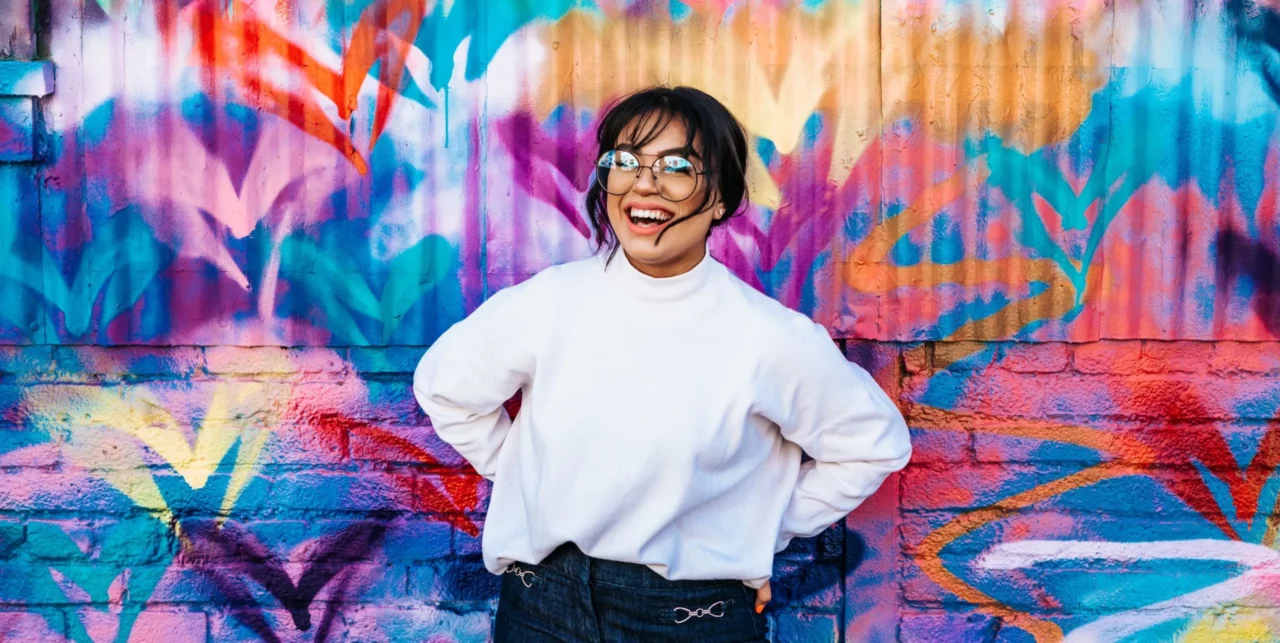Disability Pride Month
All too often, Disabled people are left out of conversations around change, sustainability, and D&I. Yet, creative problem solving which punctuates the lives of many Disabled people, is an essential element of tackling these pertinent issues.
The UN has acknowledged Disabled people as the world’s largest minority group – with over a billion people living with disability. This minority group is unique in that any of us could become a part of at any time. So, why aren’t accessibility needs being met?
This Disability Pride Month we want to celebrate some incredible Disabled activists and changemakers. Here is a short list of only 6 Disabled activists who are changing the way we view disabilities, and Disabled people – with so many more people doing wonderful work. We see you!
Wave-makers
Sophia Moreau
Sophie is a Black Disabled campaigner, who has co-founded platforms for people to discuss the racism and ableism that exists in the charity sector (#NotJustNCVO will connect you to this group).
She also regularly speaks out about the gender pay gap, and has been pivotal in campaigns such as ‘Pregnant then Screwed’. Follow her on Twitter.
Disabled Eliza
Eliza is a Disabled, LGBTQ+ content creator based in London. She uses social media platforms to destigmatise wheelchair use, and educate on accessibility and the history of disability rights.
Eliza posts videos about the freedom that wheelchairs offer to some Disabled people, and the common issues with Disabled spaces which non-Disabled people may not consider. If you have an office space, or physical workplace – is your Disabled toilet free from clutter, clean, and is the emergency cord hanging free to the floor? Are dropped curbs clear, and pathways free from obstructions? Find her on Instagram, YouTube, and Twitter.
Sulaiman Khan
Sulaiman is, in his own words: a “Disabled/wild/sexy AF Adventurer and Continual WIP. Creating relationships, stories, and joy.”
Sulaiman has been speaking out and advocating for the skills, perspective, and joy of Disabled people in creative industries, with a focus on intersectionality and social consciousness. – you’ll notice a shout out to the Paralympians of 2012!
Chronically Jenni
Jenni educates people through her YouTube, TikTok, Instagram, and Twitter on the day to day lives of those who live with disabilities or chronic conditions. Jenni has Ehlers Danlos Syndrome (same as me!), as well as co-morbidities, and shares lots of advice and hacks for living with chronic conditions.
In a series, Jenni draws comparisons between the perception of walking aids in comparison to glasses. This includes the view that using a walking aid is ‘giving up’, and we should be pushing ourselves to walk unaided for as long as possible and beyond. The comparison to glasses, which are generally accepted as needed and benefitting the wearer, shows how our stigma affects the day-to-day lives of those of us with disabilities and chronic health conditions. The other comparisons are great, so I’d encourage you to check them out.
Clara Holmes
Also knows as ‘Rollin Funky’, Clara is a Black wheelchair using fashion model and public speaker.
Clara works to encourage self-love, body positivity, and representation of diverse bodies in the beauty industry. She shows the beautiful, bright, and joyful sides of being Disabled. After all – many of us feel the lack of accessibility in our society is the main reason for strife as a Disabled person.
Ellen Buttrick
Ellen is a Paralympic Champion from Tokyo 2020, winning the gold medal in the mixed coxed four. Ellen is a rower, a Trustee with Love Rowing, and a two time World Rowing Champion. Ellen is studying Gender, Politics & Inequalities at LSE. She was also recently an intern with Included! Keep up with Ellen on Twitter.
What does Disability Pride Month mean for work?
Did you know that a study by Scope in 2019 found that Disabled people on average spend £583 more per month? This is because we need medical aids, specialist equipment, have higher energy bills for charging equipment, regulating temperature, and other needs. Many people also have to allow for fatigue or limitations when it comes to everyday activities like cooking, cleaning, hygiene… The list goes on.
In our very existence, navigating a world that wasn’t built for Disabled bodies, we are creative, determined, and driven. We have a lot to offer. Workplaces inclusive of Disabled people are more innovative, productive, and profitable. Additionally, as this short list of Disability influencers shows, excluding Disabled people with inaccessible design is to miss out on vibrant, funny, and insightful voices.



